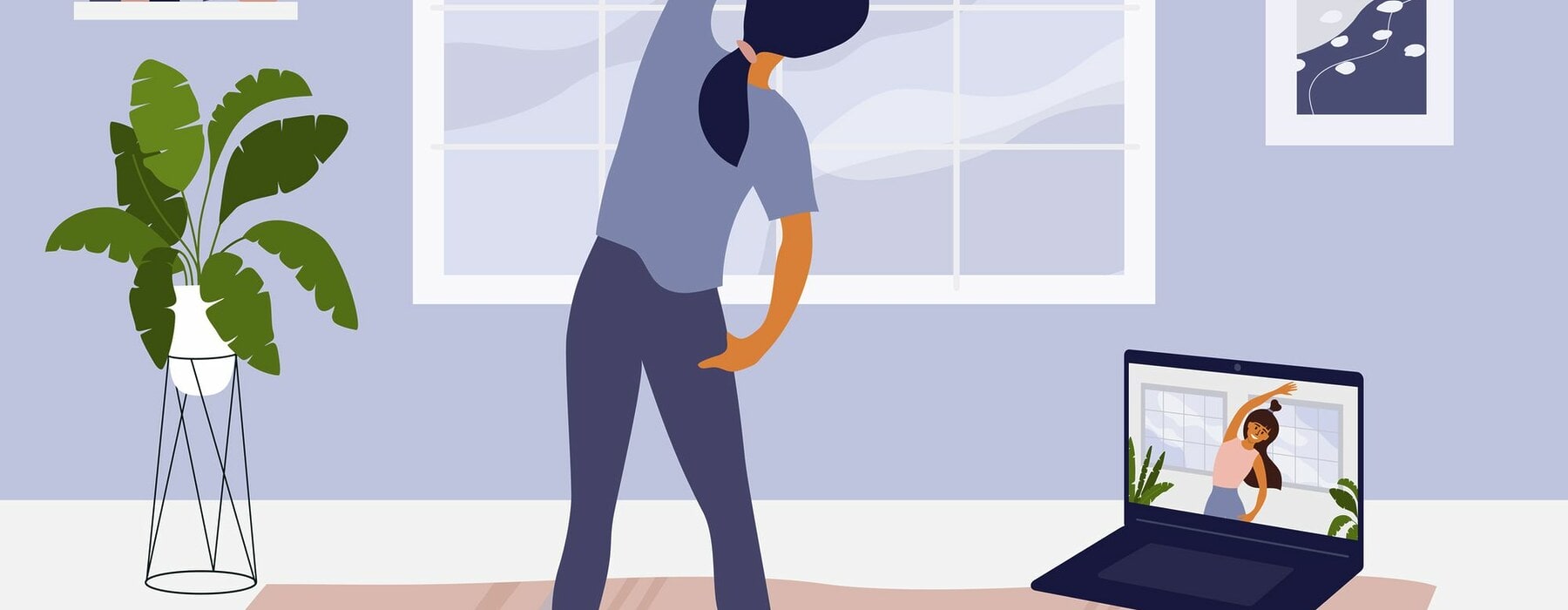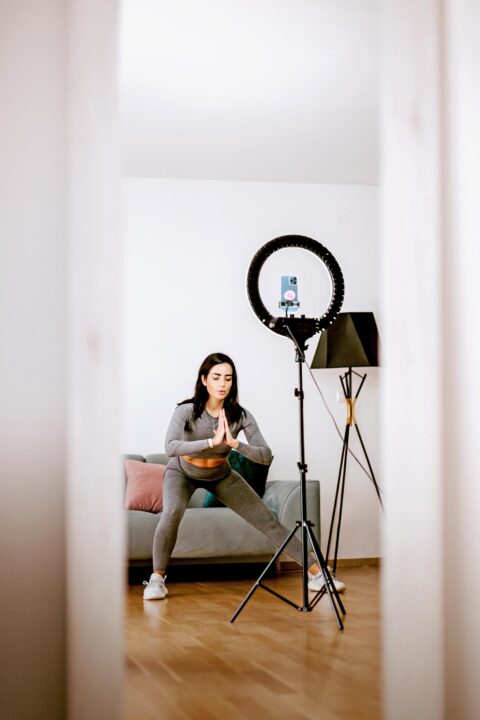Sticking to a “normal” schedule can be difficult when you’re stuck in the house, but making an effort can really help – mentally and physically.
When your world becomes a bit smaller and less certain – as it is when we’re in various levels of lockdown – it can be easy to get out of the habits we’ve established around eating, exercise and other forms of self-care. With work, school and life all happening at home, it can be stressful and anxiety-inducing for families, and if we’re on our own, we can also get a bit down and discouraged.
So how can we make sure we look after ourselves in both body and mind? Here are some simple ways of keeping on track when our normal routines become disrupted.
1. Try to stick to routines
Whether it’s a work meeting in PJs before breakfast or focusing on homeschooling every morning, try to establish some kind of routine for yourself and your bubble. Having routines helps us feel a sense of control when things we can’t control seem scary and difficult. Getting up and going to bed at the same time each day is a really good habit to get into; staying up late and sleeping in might be tempting, but won’t be helpful for your overall mental and physical health long-term.
2. Prioritise sleep
Sleep can be difficult when we’re stressed. During the 2020 lockdowns, Massey University’s Sleep/Wake Research Centre led a study on the sleep habits of Kiwis and how their mood was affected. Almost half of respondents said they had worse sleep quality during lockdown than before, and the same number also said their mood was worse.
If you’re finding it a challenge to get a good sleep, be diligent in turning off or tuning out from devices at least half an hour before bed. Their blue light disrupts our melatonin production – this is a hormone we need for sleep – and constant scrolling through gloomy news doesn’t help with anxiety levels. It pays to remember,
too, that if we do wake in the night, our thinking is likely to be skewed.
“We catastrophise at night,” says sleep expert Dr Alex Bartle, who runs Sleep Well clinics around the country. “Everything’s much worse in the middle of the night.”
Following all the below tips will also help with sleep.
3. Move it!
We know there are many benefits to exercise. It’s not only useful for our bodies, it’s also a known mood booster. During 2020’s lockdown, people who reported exercising less also had lower wellbeing scores, and vice versa. Whatever you can do – whether it’s a home workout, a bike ride with the kids or a walk around the neighbourhood – it’s going to be great for your overall health.
4. Don’t go crazy on treats
It’s tempting to treat yourself with daily happy hour, snacks and lots of home baking when you’re confined to four walls. Try not to make treats into regular habits, though. Keeping to a (reasonably) healthy eating pattern will help you feel less sluggish and in better shape when alert levels come down.
5. Experiment with food
That said, try and have fun with your food. Lockdown is a good time to experiment with new ingredients (or those things that have been lurking in the back of the pantry for months) and recipes you’ve been wanting to try. You might even discover a new favourite.
6. Don’t overdo media
It’s not called doomscrolling for nothing! Constantly seeing sad news stories or people getting mad at each other on social media can really ramp up the stress levels. And it can distort our perceptions. “Frustration, irritation with yourself and others, and distress are common experiences when we’re under chronic stress and it feels like there is no way out”, says Dr Sarb Johal, registered clinical psychologist. “When your stress hormones are continually pumping because your threat system is active, it’s hard to see things as they are.”
Step away from the news and the socials, and read a book or listen to music to give your brain a break and help regain some perspective.
7. Connect and give back
Another way to boost mood is to connect with other people – especially if you’re on your own. For an extra feel-good factor, find ways you can help others. Phoning a solo friend or neighbour, offering to drop off groceries (safely) for those who are isolating, or even just supporting a local small business when buying essentials are all ways to make them – and you – feel better.
8. Get outside
Getting out in fresh air and nature helps us de-stress and improves mood. Heading outside early also helps us with sleep later in the day – exposing our eyes to blue-green daylight (which we get especially when we’re in natural environments) helps produce serotonin, which converts to melatonin at night. The more melatonin we produce at night, the better we sleep.
9. Get vaccinated
It’s a no-brainer. Book and get your Covid vaccination. You’ll protect yourself and others, and it’s guaranteed to make you feel good.








